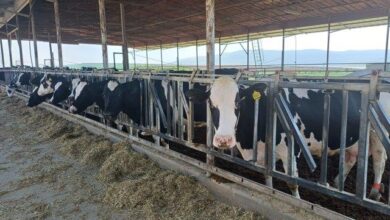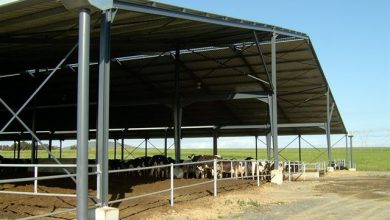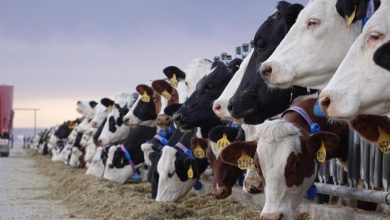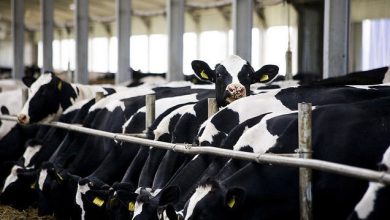Israel is Model for World Dairy Industries
Delegations from far and wide come to see the Israeli closed-loop cowshed ecosystem devised
Karin Kloosterman
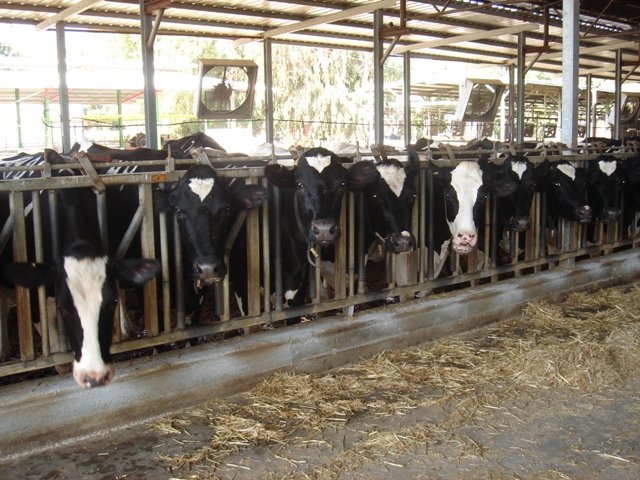

Israelis are pretty passionate about their dairy products. So important is cottage cheese to the average Israeli that the price of the product was the poster issue for the Israeli social protests three summers ago.
But Joshua Miron, head of the Ruminant Sciences Department at the Volcani Center in Israel, says his work is much more than about a love for milk.
The Volcani Center is a government-run research institute that investigates everything related to the agriculture industry, including dairy cattle. Miron showed ISRAEL21c his cowshed laboratory, a high-tech outdoor facility that waters, protects, feeds and milks 230 milking cows in the village of Beit Dagan, about 20 minutes south of Tel Aviv.
He shows us how 120,000 cows at Israel’s 1,000 dairies each produce about 11,500 liters of milk per year in an ecologically sound way mandated by law, says Miron.
Delegations from far and wide come to see the Israeli closed-loop cowshed ecosystem. In a typical month, you might see delegations of dairy farmers from Thailand, France, or Russia coming to the Israeli research center, which looks like a big farm.
Feeding the cows leftovers
From feeding cows “recycled” vegetarian food byproducts, to growing fodder on recycled water and returning the manure to the fields, Israel has become a model for the world’s dairy industries despite a lack of water and arable land.
Israeli dairy farmers and their support network at the Volcani Center looked at the size of Israel – about as big as the state of New Jersey – and created a new closed-loop system that helps the milking industry better integrate into the values of Mother Nature.
“The issue is very clear,” says Miron. “The Israeli dairy industry is very sensitive to public opinion. And public opinion today is against throwing away garbage and messing up the environment. It’s for preservation of the land and the environment to avoid smells and flies coming from the dairy barns. Now, by Israeli law, the dairy barn must be completely separated from the local environment.”
Government and private funders put together $1 billion to revamp the dairy industry in Israel. What’s come about are some unique achievements like special bedding in the cowshed to prevent aquifer water contamination, and adding food industry byproducts to cattle feed to reduce the end cost of milk.
Fodder grown in Israel comes with a lot of tough lignin. So Volcani has developed measures for growing this kind of feed in hot climates using salty recycled water, which cannot be used for vegetables. The center’s special formula ensures the cows still get the nutrients they need. Water is an important consideration.
There are only 1.5 billion cubic meters of water available for people in Israel annually, leaving 300 million cubic meters for crops. Only trees, non-food crops and food grown for animals can be irrigated with recycled water, which may have high bacteria loads and lots of salt.
A Volcani-assisted product from AfiMilk can monitor a cow real time to make sure her milk is free from infection and with the right protein and fat components. The same system can also help monitor the general well-being of the cow.
ISRAEL 21C 15/8/13

